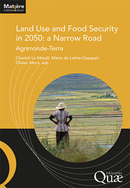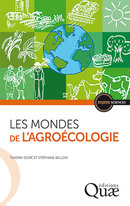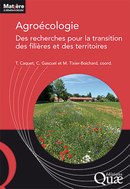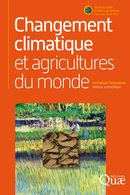This Print On Demand book will be sent within 3 weeks (metropolitan France) and in a separate package if you order another paperback book.
Cet ouvrage en impression à la demande sera envoyé sous 3 semaines environ (France métropolitaine) et dans un colis séparé en cas de commande avec un autre livre papier.
Agroecology was chosen by INRAE as one of its interdisciplinary scientific foresight studies designed to identify research fronts in response to major societal challenges. Eighty researchers drew up an assessment and proposed research avenues for agroecology. This book summarizes their main conclusions.
Agroecology, as a scientific discipline that puts ecology back at the centre of agricultural system design, is now well established. Diversification of living organisms in agroecosystems is a broad objective that is intended to make these systems more robust and resilient. Research in genetics and landscape ecology must be mobilized so that agroecology can use mechanisms from the field to landscape scales. Progress is being made in modelling agroecological systems to better understand the many biotic and abiotic interactions, to predict them, and to begin to manage some of them. Diversification of living organisms in agricultural production (species, varieties, crop rotations, etc.) leads to more varied products. The consequences will be significant on the commodity chains, and more precisely on agri-food systems, from production methods to product consumption. These changes are long-term. The agroecological transition, which is adaptive, co-constructed with all actors, is in itself a research subject, and will rely on experimental devices, farms, and ‘Territories of innovation’.
The French version of this book, Agroécologie : des recherches pour la transition des filières et des territoires, is available on our website.La version française de ce titre, Agroécologie : des recherches pour la transition des filières et des territoires, est disponible sur notre site.





















